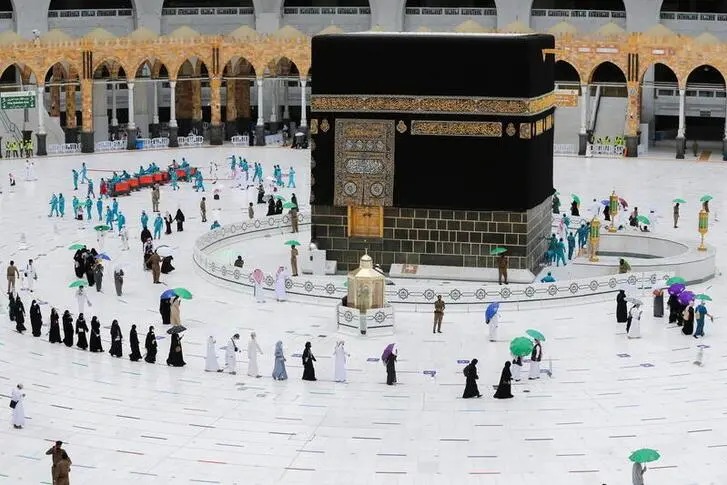PHOTO
The minister met with investors at the Makkah Chamber of Commerce last week and stressed the importance of cooperation between the sectors as the Kingdom works to recover from the economic effects of the global pandemic.
Ahmed Bajaiffer, an investor in Umrah companies, told Arab News that in the context of expanding cooperation between the private and public sectors, it is possible to allocate supervisory tasks that were entrusted to the Ministry of Hajj and Umrah to private sector firms.
These include airport reception firms, surveillance companies, firms monitoring offenses and imposing fines, and ground handling companies.
One idea under discussion is to establish a Hajj and Umrah Development Fund that is sovereign and affiliated with the state, Bajaiffer said.
“The fund will support the private sector’s initiatives in exchange for investment partnerships that manage all the sector’s details,” he said.
“There is more leeway now for ideas and innovation to provide better services, based on a sector that is completely nationalized.”
The next phase requires the implementation of initiatives to restore the dynamism of the sector, he said, adding that “the stronger the industries in the Hajj and Umrah system are, the more positive the outcome.”
Head of World Hajj and Umrah Convention Mohsin Tuttla told Arab News: “Before COVID-19, we were witnessing a perpetual compound 10 percent annual growth in pilgrim numbers; with recorded figures estimated around 18 million Umrah pilgrimages in 2019, successfully growing in line with the Vision 2030 outlined forecasted figures.”
He added: “The decimation of pilgrimage numbers imposed by COVID-19 and its variants has crippled the underpinning ecosystem that has been supporting the smooth operation of the Hajj and Umrah pilgrimages.”
Tuttla said that the mandate of Vision 2030 for Hajj and Umrah performance is often misunderstood, citing tax revenues as being the primary focus.
“Nothing could be further from the truth; the objective is to ensure that the Hajj and Umrah ecosystem is self-sustainable with a reduced dependency on financial subsidy provided by declining oil revenues. It is about creating a model where experience expectation of the pilgrimage remains in line with pilgrim expectation and supported by its own performance as a sector.”
“As an ecosystem, we need to identify where all the breaches of confidence remain and how to restore confidence, attract new investors into operating core services or provide bailout packages so the worst-affected sectors can restart.”
Copyright: Arab News © 2021 All rights reserved. Provided by SyndiGate Media Inc. (Syndigate.info).





















